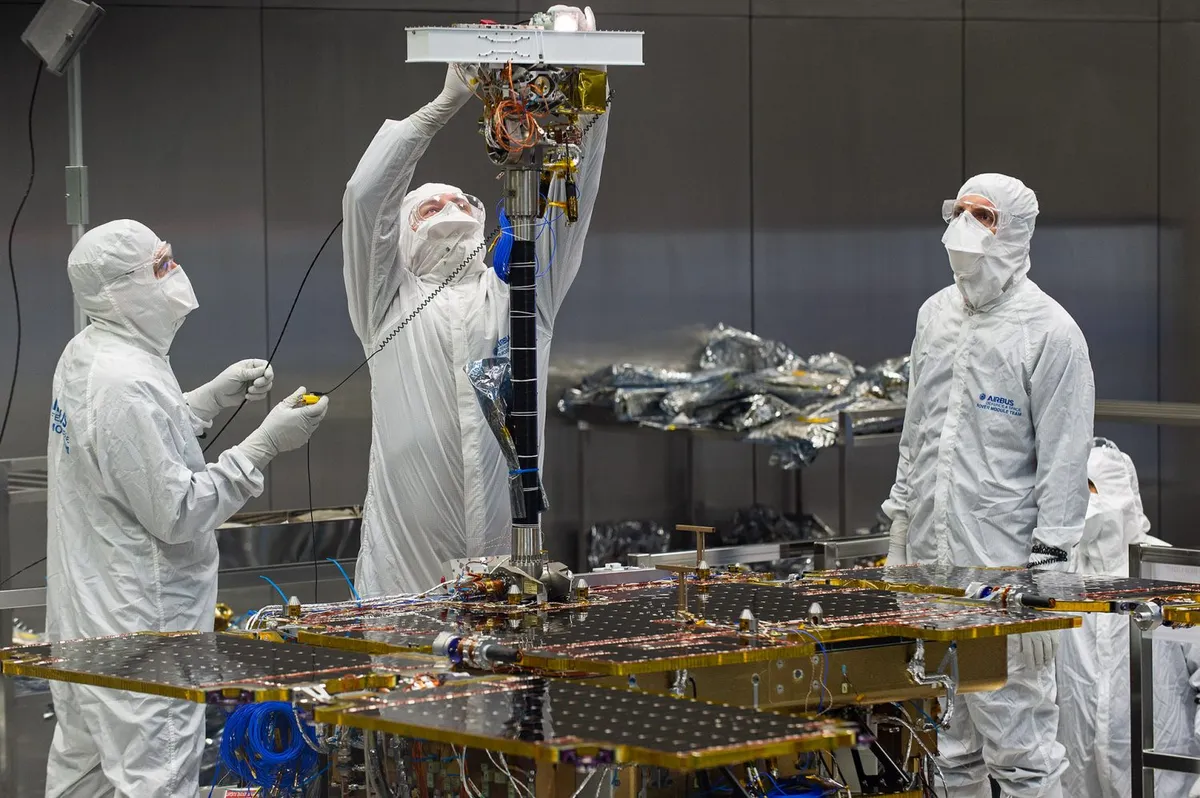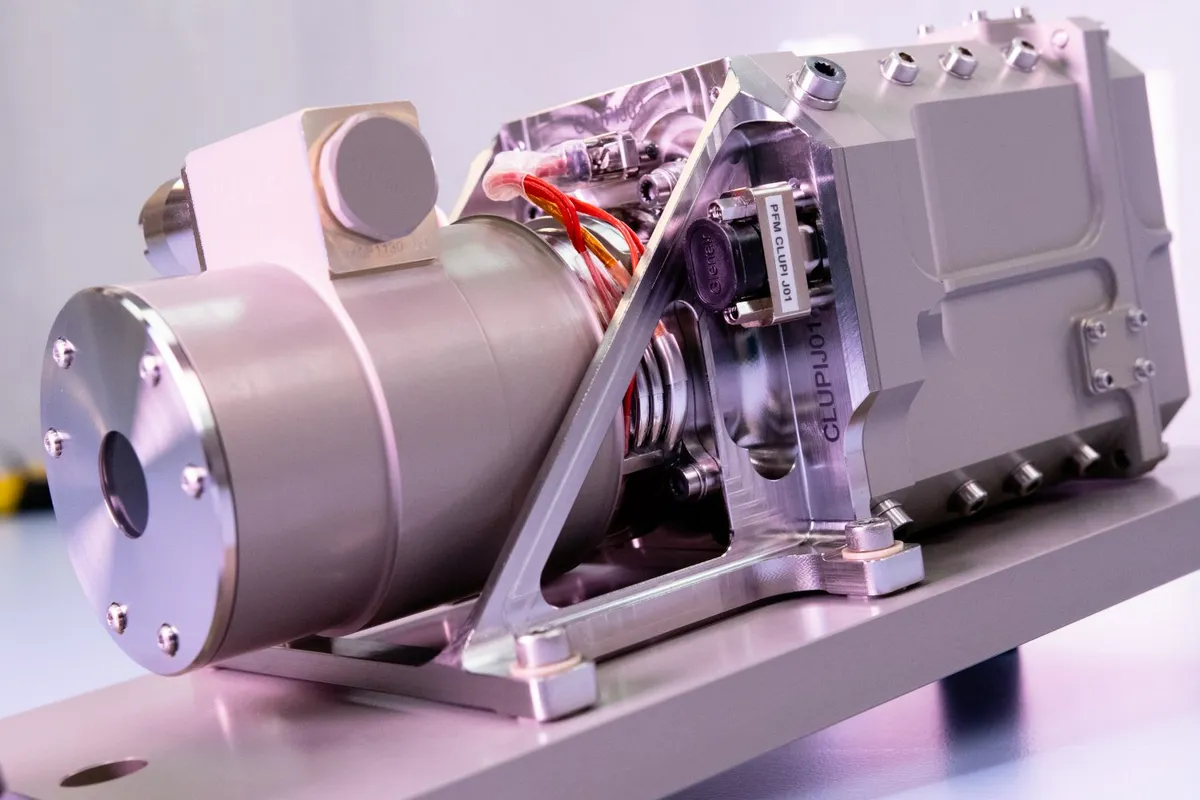Cameras, drills and other scientific instruments have been installed on the new UK-led Rosalind Franklin rover that will search the surface of Mars for signs of life.
It is one of a spate of new rovers journeying to Mars in search for signs of life, including NASA's Perseverance rover.
The Martian rover - which is part of the ExoMars collaboration between the European Space Agency and the Russian space agency Roscosmos - is being developed at Airbus Defence and Space in Stevenage in the UK.
It is named after Rosalind Franklin, the British chemist whose work in the early 1950s was key to our current understanding of the double helix structure of DNA.
Engineers have installed the rover's PanCam (Panoramic Camera), which will sit on top of a mast 2 metres above the ground and will be scientists' eyes on the Martian surface.
PanCam will provide views of geological features in visible and infrared light, while the rover's spectrometers will reveal the composition of Martian rock samples.

Rosalind Franklin is also equipped with a drill to collect samples as deep as 2 metres below the surface, which can be delivered to the rover's onboard science laboratory.
The drill unit even has its own camera installed - named 'Clupi' - that will capture images of the soil that is being churned up.
The rover will also have a subsurface sounding radar and neutron detector.
Rosalind Franklin's mission is part of the ExoMars programme to examine the Red Planet and search for signs of life.
The first part of the mission was the launch of the Trace Gas Orbiter and the Schiaparelli lander in March 2016.

Planetary scientists believe Mars was much wetter and more like Earth in its ancient past, with liquid water lakes and rivers: much different from the barren, dusty planet we see today.
By examining geological features and capturing soil and rock samples, it is hoped that Rosalind Franklin can shine a light on what sort of planet Mars was in its ancient past, and what it's like today.
It could even reveal whether Mars once hosted - or could have hosted - some kind of life.
The Rosalind Franklin rover has now been sealed in a dedicated cleanroom and is awaiting transport to Toulouse in France.
There, scientists will check the rover to ensure it is ready to survive conditions on Mars, ahead of its planned launch in the summer of 2020.

